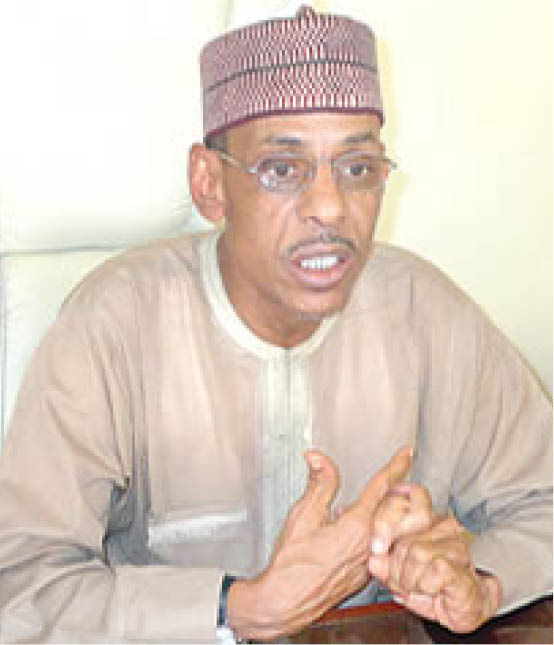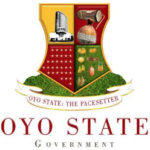Dr Hakeem Baba-Ahmed is an associate professor in the Department of Political Science and Public Administration, Baze University, Abuja. He is also the director, Strategic Partnerships in the same university. He teaches Public Policy Analysis at the National Institute of Legislative and Democratic Studies (NILDS), Abuja. In this interview, he discussed issues at the heart of the current face-off between the Academic Staff Union of Universities (ASUU) and the federal government.
What would you say is the root of the problems in Nigerian universities?
The basic philosophy, utility, management and challenges of higher education need to be interrogated and radically reformed. The dominant assumption that only governments and university employees, including academic staff, are major stakeholders in the manner tertiary education is managed, is badly flawed.
Education at all levels is a vital requirement that should be prioritised by all nations that seek development, stability and peace. Unfortunately, our leadership, in the last few decades, has treated it more as a nuisance than a vital national necessity. There must be a holistic review and strong political will behind the implementation of a new foundation for tertiary education.
What do you think should be done?
Part of the review process should involve asking the value in the federal government owning and running over 40 universities of widely-varying qualities and continuously approving the establishment of state-owned and private universities, many of which merely compound the decline of the quality of education. If the federal government must maintain ownership of its universities, it must yield substantial autonomy to their decision-making and management organs. It must do this along with real improvements in funding tertiary education, way beyond where it is at this stage.
University education is expensive to maintain by its owners. Parents pay more money for primary and secondary education than they do for university education.
For public education, the government, which insists on preserving the facade of free university education, subsidises it with public funds and allows universities to make up for shortfalls with little transparency or integrity.
Funding universities is a very serious problem, and it must involve some flexibility that allows universities to charge in a manner that does justice to the need to educate children of the poor and get those of the rich to pay more for it. Again, I must mention that federal and state governments must substantially increase their funding for education. With improved funding and wider scope for autonomy, universities can run virtually all aspects of their operations as academic institutions, setting standards, reflecting local values, recruitment patterns, fees, remunerations for all staff, leadership selection, specialisation etc.
The federal government can set guidelines consistent with the requirements of federal character and inclusiveness, but these too should be part of the core concerns of universities. The point here is that universities cannot be run as government parastatals from Abuja. A university without the freedom to make key decisions that define it as an institution for real learning and research and preparing generations to run the country provide leadership is just buildings and a collection of political academics and students learning all the wrong values
Some people blame the academic community for the rot; is it fair?
They are not entirely wrong. Academics have appropriately adjusted to the standard set by the government. They claim to champion the cause for high quality education available to all strata of society and education as the most potent tool for development, but they compromise academic and moral standards to a point where they represent a major part of the liabilities of the system. They are poor unionists who define their struggles in terms of periodic skirmishes that end up with little concessions and promises for more productive engagements in the future.
Governments know this and have no respect for them. They have been unable to build a strong constituency around education, and wittingly or not, have alienated virtually all goodwill and support that should gravitate naturally towards their cause. They fight for positions using every means free and foul, same way politicians do. This plays into the hands of the very people they should challenge over integrity and key values over propriety and merit. They must address genuine concerns that most of their strikes are about their pockets, and those who subvert academic standards around promotions and moral standards that lower their standing among students make poor cases for causes that are defined by sacrifice and high values of personal integrity.
You mentioned private universities. Are they not the solution to ASUU strikes?
The solutions to ASUU strikes are complex and deeply rooted in our decaying values and weakening qualities of leadership. Private universities should exist on their own merit, but incessant ASUU strikes boost their intake. They are expensive, so they widen the class differences between the rich and the poor.
There are issues with standards of teaching and research that I know the NUC is addressing. The more they are licensed, the more you will require more than one agency to maintain supervision over them. If the ritual involving the ASUU and the federal government can be eliminated or drastically reduced, less number of parents or guardians will prefer private or foreign universities to public ones. Private universities will then need to compete better or sink.
What is your opinion on how the current imbroglio can be resolved?
I do not think the federal government can or will meet the demands of the ASUU. There is no political will to address them, and the government does not have the resources to meet them, even if it wants to. If I were to advise the ASUU, I would ask it to look at those issues that have been the main sources of friction between it and the federal government and its key strategies in engaging it. I would prioritise autonomy, including greater financial autonomy and wider scope for policy making. It should improve its poor record in labour relations and build a wider and stronger constituency around university education. It should look critically at issues that affect its integrity as an association of intellectuals that should live by the highest standards of merit and excellence and morality. It should adopt a longer term perspective on rebuilding university education and resume teaching as a token of its commitment to a leadership that would emerge after the President Muhammadu Buhari administration.

 Join Daily Trust WhatsApp Community For Quick Access To News and Happenings Around You.
Join Daily Trust WhatsApp Community For Quick Access To News and Happenings Around You.


